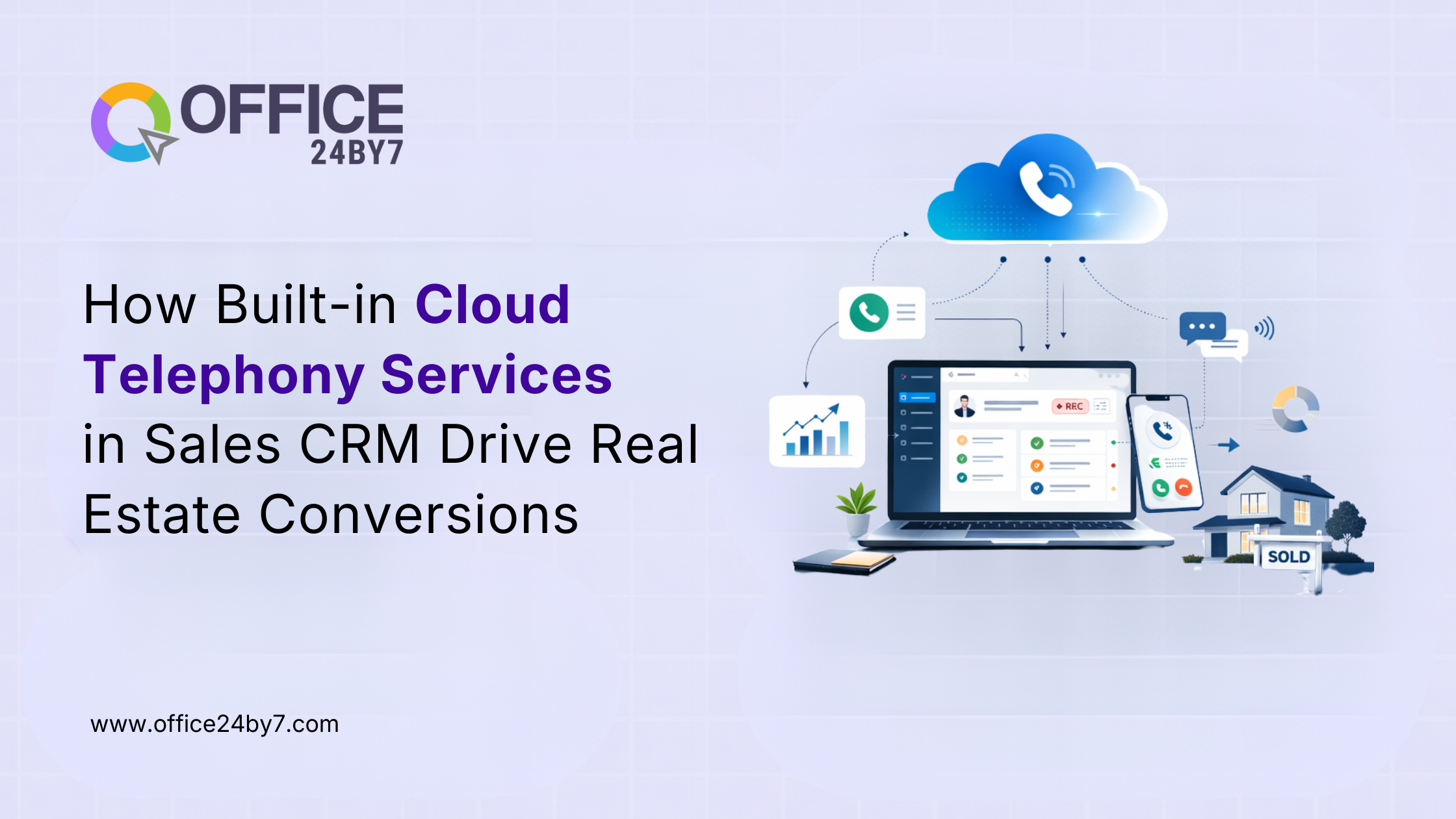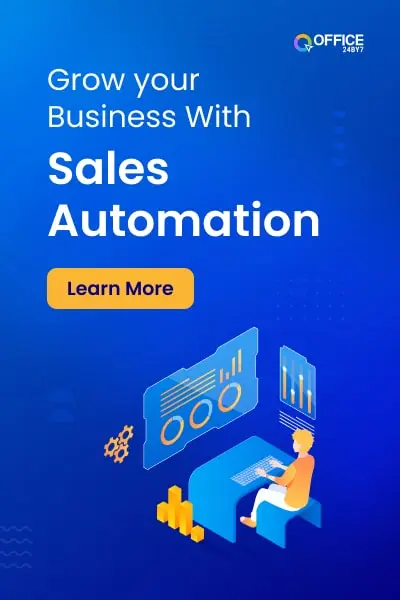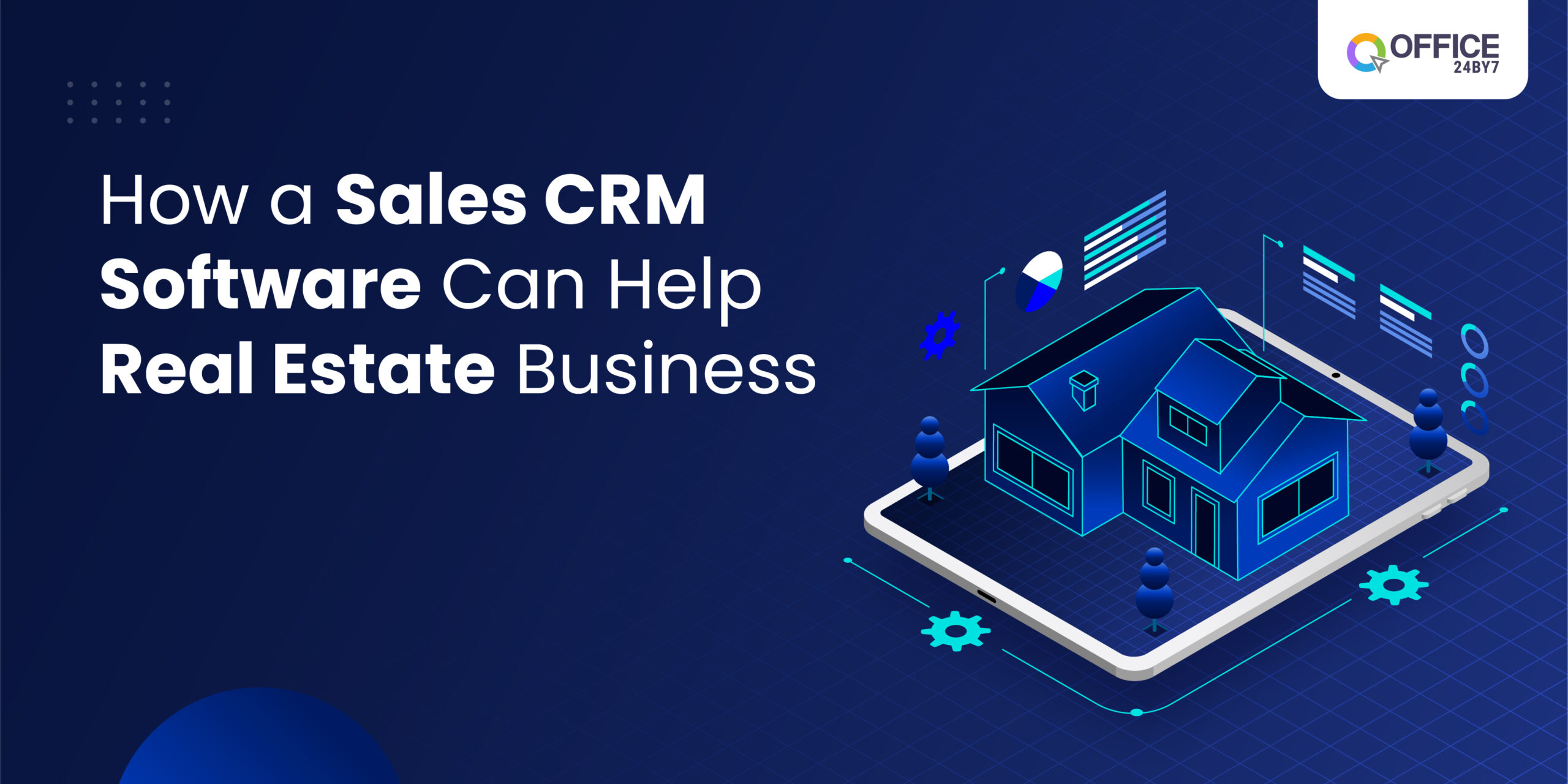
Real estate involves the most significant purchase in a person’s life, so giving them the best experience is very important. Inexperienced agents and disorganized realtors can sometimes struggle to satisfy clients, making the scope of CRM software inevitable. Establishing lasting connections in real estate, which is deeply personal, requires long-term agents to use a Real Estate CRM. This tool helps refine the experiential journey for clients.
In the past, the need for a specialized Real Estate CRM wasn’t clear. The typical sales process involves contacting prospects, collecting information, scheduling visits, negotiating prices, and closing deals. As the number of properties and leads increases, controlling the efficiency of the sales process becomes challenging.
Reps often engage in multiple follow-up rounds before a buyer decides, creating complexity in coordinating each stage and individual actions. A Real Estate CRM helps manage this complexity.
Additionally, the CRM software assists in generating quarterly reports to evaluate sales in each sector of the Real Estate business. Adjusting marketing funds based on results becomes easier with this valuable tool.
What is a CRM Software?
A Customer Relationship Management software or CRM software, is a unified software that helps to coordinate and streamline business processes like sales. A CRM software that focuses on sales processes is called Sales CRM software. Various modules of the sales CRM software help to focus individual steps of the sales pipeline. It helps oversee and manage multiple pipelines with extensive support from other modules, tools, and integrations. It also comes with technologies like IVR numbers, Cloud Telephony services, voice broadcasting, sales automation, etc.
Sales CRM software can be found often tailored for specific industries. Logistics, Insurance, Real Estate, Manufacturing, and other industries require specialized sales CRM which caters to all of its requirements.
The Role of Real Estate CRM in Real Estate Processes
Inside Sales: Getting Your Sellers
When a property is ready to be sold, the Seller reaches out to your agency or business. They can come in via your Ads on billboards, Websites, or even through Yellow Pages. There are several inbound Lead generation sources.
- Virtual Numbers like Toll-Free numbers that you can place on flyers, billboards, website landing pages, PPC landing pages, etc. are easy, effective, and risk-free investments.
- You can also deploy IVR numbers so that your incoming leads do need not to wait in long queues to get connected with the right agent and at the same time you have a great brand persona to anyone who tries to initiate communication.
- You can also use Click-to-Call buttons on your website and ad landing pages so that leads can directly reach out to you with a single click.
Tips: There are a few questions that you should compulsorily ask your seller so that you can leverage them while discussing the property with the ideal buyer.
- Why are they selling the property?
- How soon are they expecting the sale?
- What are the previous selling costs?
- Which elements are included in the sale?
- How good is the neighborhood?
- Are there natural hazards or lead paint?
- Previous or existing issues with property conditions?
- What are the ages of the components?
- What is the history of repairs and renovations?
- What are the USPs of the property?
- What are the sellers’ financial expectations?
- Records such as taxes, insurance, licenses, unpaid taxes… and so on.
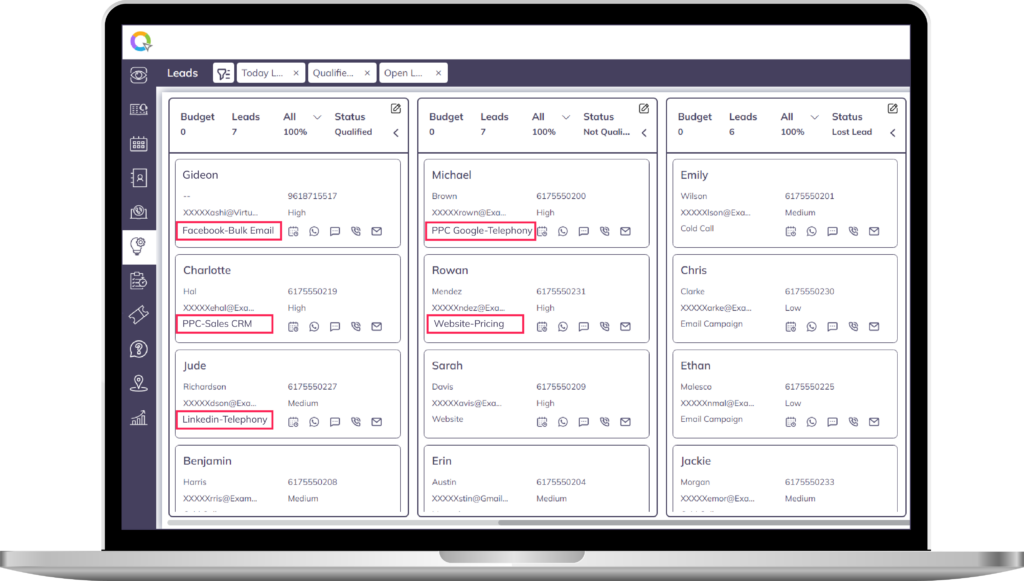
No matter where your leads come from, it’s crucial to gather and organize them in one place with useful features. The Real Estate CRM software addresses this challenge effectively. Real Estate CRM seamlessly integrates with social media platforms such as Facebook, Instagram, and WhatsApp, automating the process of collecting leads from these sources.
A quality Real Estate CRM goes a step further by automatically capturing leads from various channels. This includes digital marketing, social media efforts, and leads generated through traditional methods. This streamlined approach enhances efficiency in lead management.
This can help you record all important data like the sellers’ personal data, their documents, their requirements, the agreement of listing, etc.
Sales Listings: Lead Activities and Notes
First, properties for sale are to be listed properly. For you to actively start marketing the property you will be required to gather the signed consent for listing. This agreement gives you legal authority over any other competitor. It is one of the first important documents that you need to save to the lead information section of your Real Estate CRM.
A sales listing resembles a pact wherein the real property is promoted through a collective service or association involving multiple agents. This practice is usually done while dealing with clients who are not in and around the same neighborhood. A Multiple Listing Service (MLS) is a collaborative database that facilitates brokers in viewing each other’s property listings, ultimately building connections between prospective homebuyers and sellers.
Staging The Property: Lead Management
When preparing to showcase a property for sale, it’s crucial to ensure it’s in optimal condition. Start by visiting the property and making thorough notes about its state, which will later be shared with the seller. The implementation of a Real Estate CRM is particularly valuable in this process. The Lead Notes feature of a sales CRM allows you to store detailed notes for each property, facilitating easy reference and verification throughout your sales journey.
Utilizing a Real Estate CRM ensures immediate access to these notes, streamlining your property staging process and ensuring critical information is readily available. This not only enhances efficiency but also contributes to a smoother and more organized sales experience.
After configuring the property, the subsequent step is property marketing. To achieve a comprehensive approach, it’s essential to utilize both online platforms and offline connections. This involves the gathering and organization of leads from various social media platforms.
A Real Estate CRM proves instrumental in this phase, streamlining the lead management process by offering integrations with platforms like Facebook, Instagram, WhatsApp, and more. A sales CRM eliminates the need for manual data collection, deduplication, and individual addition of details. The automated integration significantly improves efficiency in lead management, maximizing the effectiveness of your marketing efforts.
The notes you’ve taken during your property visit become invaluable in informing the seller about necessary repairs to prepare the property for sale. After jotting down these observations, the next step is to reach out to the seller. A reliable sales CRM, such as Real Estate CRM, seamlessly connects with various communication channels, allowing you to send emails, WhatsApp messages, or SMS messages.
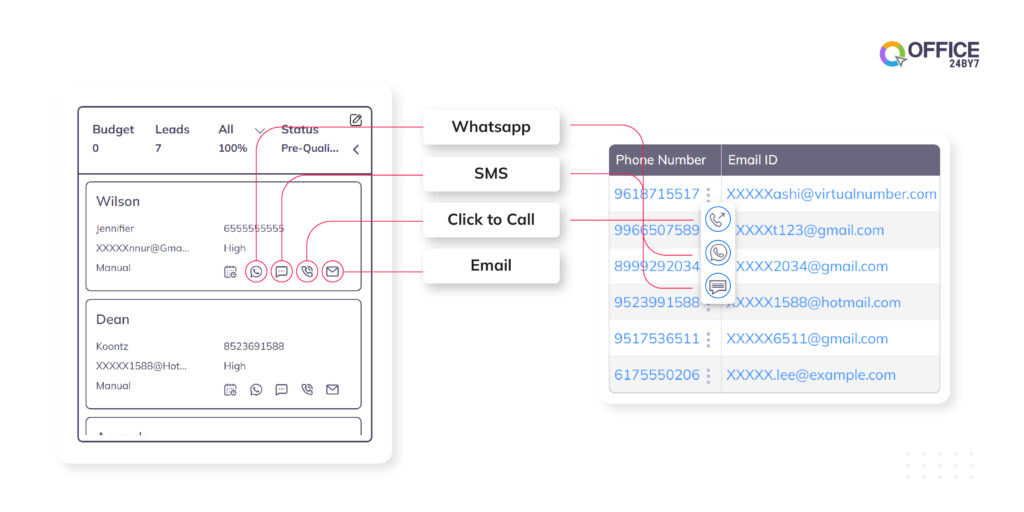
The Real Estate CRM’s organized approach makes it easy to schedule and track all communication activities under each lead. This ensures you remain on top of your interactions, providing a seamless experience for both you and the seller throughout the real estate process.
Marketing/Promoting the Property
After getting your property ready for sale, it’s time to spread the word! You may wonder what a Real Estate CRM has to do with marketing your property. Traditional methods of marketing include putting up ads on hoardings, and billboards, and handing out flyers. If you’re into the digital scene, there’s Pay-per-click ads, social media ads, and website forms.
Top Real Estate CRM software provides Cloud Telephony services, Virtual Number services, IVR numbers, and Click-to-call services so that marketing efforts are properly channeled with the sales efforts. Effective marketing is key to attracting the right buyers. Effective marketing is key to attracting the right buyers, and a Real Estate CRM helps streamline and enhance these efforts for optimal results.
Tips: Some good places to market your property and get quality leads are:
- Local MLS or Multi Listing Service (US).
- Your Website: Attract top-quality leads organically and for free by showcasing your properties on your website.
- Company or Agency Blog: Boost your marketing reach and drive traffic to your site by writing blogs on your or your company’s behalf. Blogs not only persuade potential clients but also enhance your industry credibility, leading to successful closures.
- Social Media: Leverage the personal and expansive reach of platforms like WhatsApp, Facebook, Instagram, Twitter, LinkedIn, and others to connect with a broader audience without significant investment.
- Traditional Approaches: Don’t overlook the effectiveness of traditional methods such as cold calling, emailing, and face-to-face meetings to promote your property.
Pricing the Property
When a seller decides on their property’s price, the buyer also has a budget in mind. The agent calculates an estimated value based on various factors, often discussing necessary upgrades with the seller. After the improvements are done, the agent reassesses the numbers. During negotiations and appraisals, different versions of the deal price come up, navigating the space between the initial expectations of both the seller and the buyer.
Agents need to understand that the initial asking price of a property isn’t fixed. It’s crucial to negotiate and provide the necessary information to justify the price. If a property is priced low, it might require significant investments to increase its value and sell it for a better price. Flexibility and effective communication are key in the negotiation process.
Tips: Take a look at a few procedures that will assist you in determining a proper price:
- Price of comparable properties in the same neighborhood.
- Price of a similar property sold to the customer in recent times
- Renovations and modifications were done to the property.
- What added elements does the property have? Eg. Swimming pools, yards, courts, parking spaces, basements, outhouses, etc.
- What is the current market rate of property per square foot?
- What is the market situation where you are selling the property?
Qualifying Your Buyer: Lead Qualification and Scoring
Using a Real Estate CRM which has a customizable dashboard that can facilitate the sales process becomes handy in matching your buyer profile with the seller profile. It allows you to prioritize, score, and curate leads based on rankings, ensuring you meet your sales targets consistently. Thus the streamlined approach provided by the sales CRM software enhances efficiency in managing and converting leads effectively.
Features like Lead scoring and lead qualification are also provided by the best Real Estate CRM solutions in the market. To evaluate and score leads effectively, agents must examine specific documents. A crucial requirement is the possession of a mortgage pre-approval by the lead. This stage involves assessing the buyer’s credit record, employment, and income. The pre-approval process yields essential information such as the loan duration, maximum eligible amount, and required down payment.
It’s advisable to exercise caution when discussing offers with sellers if a potential buyer only has pre-approval paperwork. Prioritizing buyers who have completed the necessary paperwork and signed contracts accelerates the sales process for both the agent and the seller. You can upload and store these documents in your sales CRM for easy access. This ensures a more streamlined and efficient experience for everyone involved in the real estate transaction.
Even so, there will be a large number of leads for you to handle at any stage. You will need to qualify your leads and then score them to simplify and efficiently navigate through the sales process.
You can use a Real Estate CRM to effectively qualify your leads based on various categories and then transfer them to the next stage. You will be able to have a comprehensive overview of all the leads and their stages while doing so. This will make it easy for you to handle clients as per their stages to make them effectively move to the deal stage.
The lead management software segment of a Real Estate CRM proves invaluable in tracking lead statuses, monitoring their progress in each interaction, capturing feedback and expectations, curating relevant documents, and establishing reminders and alerts to facilitate the process.
Buyers who can come from various places, including your existing contacts. Office24by7, a Real Estate CRM solution, offers comprehensive features, eliminating the need for additional third-party tools. This saves effort in purchasing and integrating separate tools. The Office24by7 sales CRM integrates with Gmail, Outlook, 99acres, Housing.com, MagicBricks, and more, facilitating lead generation across multiple platforms.
A Real Estate CRM also aids in sorting and tagging contacts, allowing you to score leads as warm or cold using labels. This all-in-one approach simplifies lead management within a unified system and provides a seamless experience for real estate professionals.
Scheduling Site Visits, Tours, and Showings
After identifying potential buyers, the next step is setting up appointments to show them properties. To do this, you’ll check your calendar for availability. If the desired time is open, ask your clients to choose a date and a time that works for both of you. Simplify this process by using a calendar integration with your Real Estate CRM. Once a slot is chosen, easily schedule the meeting in your sales CRM, ensuring a smooth and organized coordination of property viewings.
To stay organized, set up reminders and alerts. Additionally, send SMS blasts and WhatsApp messages to clients scheduled for a showing, keeping everyone informed. Stay on top of activities by updating lead statuses in your sales CRM, such as “Site Visit Scheduled” or “Site Visit Done.” This ensures clear communication and efficient tracking of the progress in the sales process.
Enhance your real estate workflow by utilizing additional integrations like Google Maps. This feature allows seamless sharing of property locations, improving communication with clients. With a Mobile Sales CRM equipped with integrated cloud telephony services, tracking field sales agents becomes effortless. The system notifies agents about nearby clients, enabling them to reconnect and strengthen client relationships proactively.
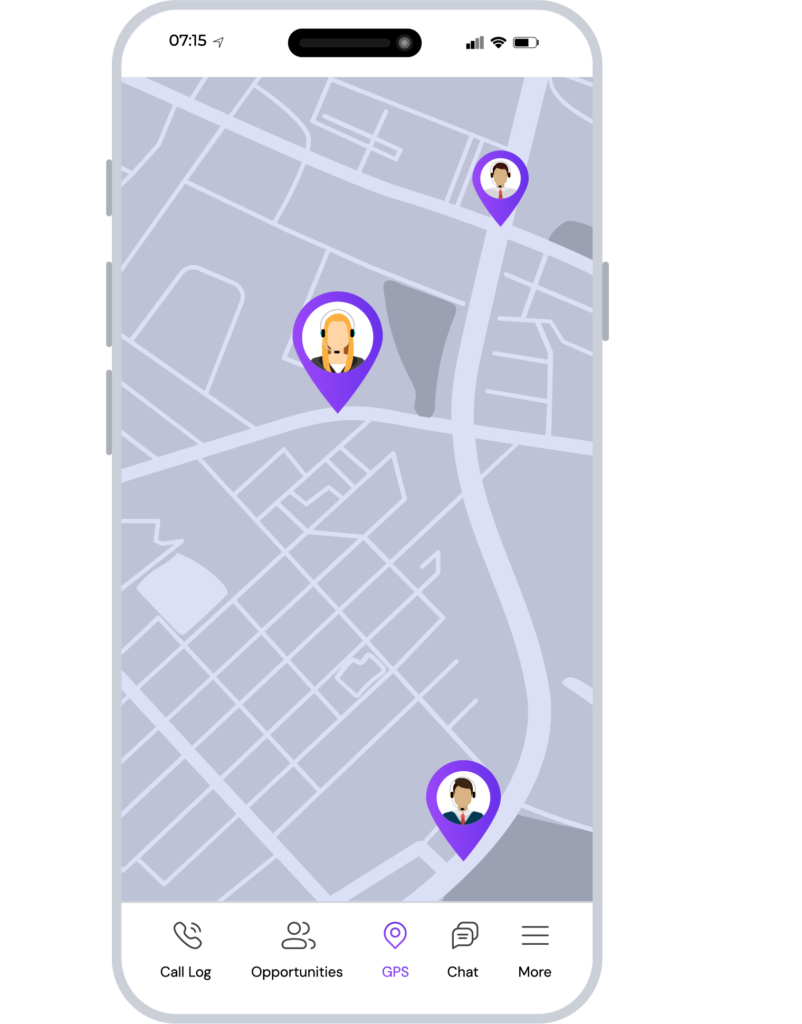
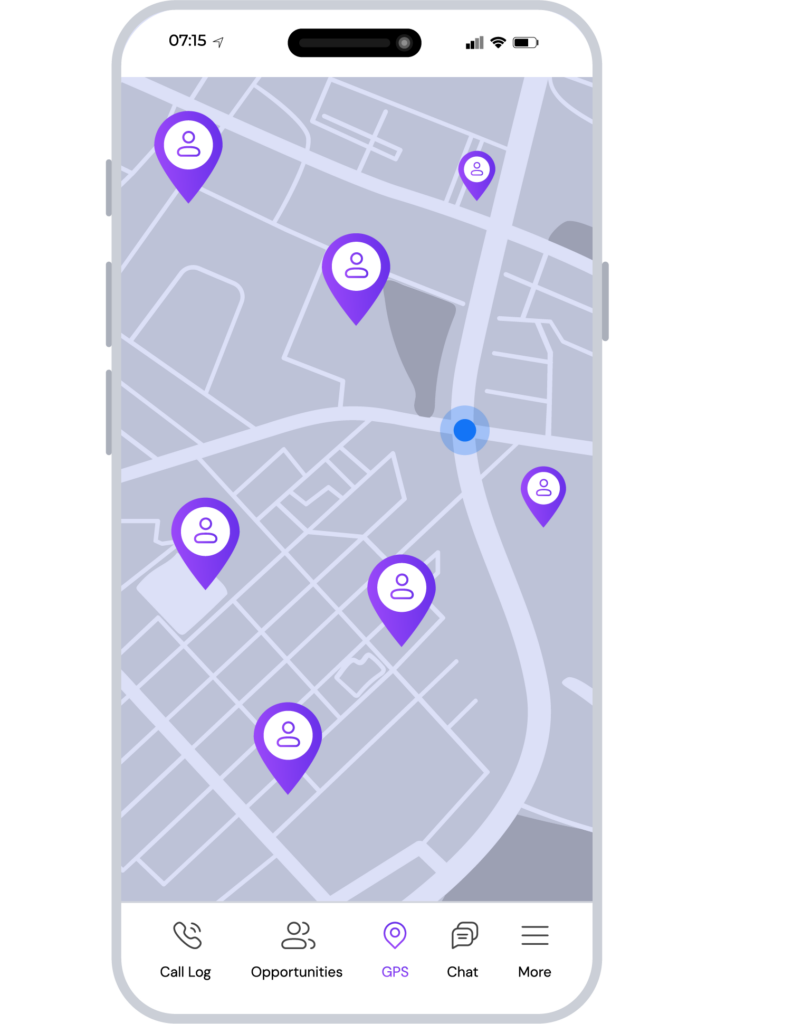
This integrated approach not only streamlines location sharing but also optimizes field sales activities, fostering efficient agent-client interactions. It creates a more connected and responsive experience for both the real estate agent and the clients involved.
Negotiating Your Buyer
The real estate agent’s job truly begins once both parties have agreed on their terms and conditions. Your role is to familiarize yourself with these agreements and any additional requests made, bringing them to the seller’s attention once a suitable buyer is found.
Before setting up a meeting between the buyer and the seller, it’s vital to negotiate with the buyer and understand their preferences in a home. Shifting from a proposed contract to a negotiation agreement allows you to enhance your approach and better align with the needs and expectations of both parties involved. Effective communication and negotiation skills are key in this phase of the real estate sales process.
Lead management module of a Real Estate CRM is equipped with tools like Lead Notes, History and Activities to keep you on top of your communications. Examining all the information can be demanding and may involve numerous conversations and meetings between you and the buyer. This process might cause tension and strain, but it’s essential for a smooth transaction.
To strengthen a buyer’s trust, provide all the details they may require, including support for loan procedures, repairs, equipment, and fittings. Offering comprehensive assistance builds confidence in your buyer.
After the buyer makes a decision, they may visit the property more frequently to discuss their requirements or any additional ideas that come to mind before finalizing the sale. Clear and open communication during this phase is crucial to address any concerns and ensure a positive buyer experience.
To accomplish these tasks you will need to engage in various activities which a Real Estate CRM provides. For example, you’ll need to engage in various communication methods such as sending emails, making phone calls, and sending SMS and WhatsApp messages. It’s crucial to track and organize all communications. Additionally, the information received from these interactions should be curated and integrated with the lead data.
Utilizing solutions like WhatsApp marketing services, SMS blast services, and voice broadcasting services can be helpful in efficiently handling leads. These tools offered by a Real Estate CRM enhance your ability to communicate, track interactions, and manage lead information, contributing to a more organized and effective real estate sales process.
Closing the Sale
A Real Estate CRM plays a pivotal role in facilitating a seamless sale closure. One critical aspect at this stage is the property evaluation, where the buyer may engage an inspector. The inspector’s report is essential for the buyer to understand the condition of the property, including any fixtures required in the next 4-5 years. Here, the Real Estate CRM assists the agent in clarifying potential misunderstandings from the Lead notes he has curated during his journey.
A crucial step towards sale closure is the final inspection. This stage ensures that both the buyer and the seller are fully informed about any changes to the property. The Real Estate CRM aids in tracking and managing these inspections, providing a centralized platform for communication and negotiation. Price adjustments may arise during this phase, necessitating a final negotiation agreement. The Real Estate CRM’s integrations with communication channels enable the agent to efficiently coordinate and communicate these adjustments, fostering a smoother closing process.
Documentation is a key component in the final phase of the real estate sales process. With pricing and negotiations finalized, the agent utilizes the Real Estate CRM to streamline the paperwork process. The sales CRM acts as a centralized hub for essential government documents, making it easier for the agent to provide the necessary paperwork to both the buyer and the seller. This efficiency ensures a swift and organized completion of the contract, contributing to a successful sale closure.
As the sale closure phase unfolds, the Real Estate CRM becomes an invaluable tool for the agent. Beyond managing inspections and negotiations, the sales CRM assists in tracking the progress of essential documentation. It offers a comprehensive solution, enabling the agent to fulfill their responsibilities seamlessly, from clarifying inspection reports to finalizing negotiation agreements and ensuring all necessary paperwork is in order. The Real Estate CRM contributes to a smooth and efficient sale closure process, marking the successful culmination of the real estate sales journey.
Tips: Some of the documents that you need to make sure you have gathered are
- Property Deed
- Title certificate/ title insurance policy:
- Final readings of electric and gas meters.
- Seller’s property insurance policy
- Tax bills and other sewerage concerns
- Survey and plot plan
- Warranties or service records
Post Sale Activities
In the post-sales stage, utilizing a Real Estate CRM becomes crucial for ensuring the completion of essential steps with equal importance as the preceding stages. As a real estate realtor, the final task involves removing the property from the market once all documents have been provided and the paperwork has been signed. This pivotal step is seamlessly managed through a Real Estate CRM, which serves as a centralized hub for tracking and organizing crucial actions.
Ensuring a comprehensive approach, a Real Estate CRM aids real estate professionals in not only finalizing the paperwork but also in efficiently removing listings and documents from various platforms. This includes the Multiple Listing Service, the realtor’s website, and any social media ads in operation. Acknowledging the significance of this process, the Real Estate CRM offers a streamlined solution, providing oversight and ensuring a meticulous and organized conclusion to the real estate transaction.
Wrapping It Up
A Real Estate CRM offers users more than just a streamlined sales process; it contributes to enhancing clarity regarding tasks at each stage of sales making the process comfortable for the agent and the client through various features like Cloud Telephony services and IVR numbers. It aids in the segregation and oversight of multiple sales funnels and a large client database that requires timely attention. Additionally, it simplifies documentation and other repetitive tasks through automation. In essence, a Real Estate sales CRM serves to organize and boost the productivity of sales agents by providing them with absolute control over their clients.
Explore more topics related to sales CRM: Sales automation software, Mobile CRM solutions, Lead management software, Sales automation process, and Drip management.


